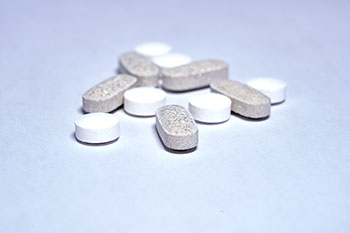
A tooth infection is when bacteria enter the nerve and blood supply in the inner part of a tooth, infecting the tooth and causing an abscess. An abscess is a pocket of pus at the base of the root caused by bacteria accumulation. A tooth infection typically causes pain, swelling and tenderness in the area and requires treatment. If not treated, the infection will grow and potentially cause serious effects such as the jaw and even the brain. Tooth infections occur due to untreated cavities, old restorative work and trauma. It is essential to see your dentist immediately when you think you may have a tooth infection, and your dentist will likely recommend an antibiotic. The type of antibiotic recommended depends on the type of bacteria and the type of infection.
Penicillin/ Amoxicillin
This class of antibiotics is the most commonly prescribed for tooth infections. The typical dosage of amoxicillin is 500mg every 8 hours or 1000mg every 12 hours. However, this antibiotic class is not always effective because some types of bacteria are resistant to these drugs, making them less effective. Also, many people suffer an allergy to these drugs, so another antibiotic would be prescribed.
Clindamycin
This antibiotic class may appear to be more effective as it works against a wide range of different types of bacteria. A typical clindamycin dosage is in the range of 300mg-600mg every 8 hours.
Azithromycin
This antibiotic is generally recommended in an allergy to penicillin/amoxicillin and where clindamycin hasn’t proven effective. It is also known to be effective against a wide range of bacteria. The typical dosage for azithromycin is 500mg every 24 hours for three straight days.
Metronidazole
This is also an antibiotic used to treat a wide range of tooth infections but may not be the first choice. The dosage of metronidazole is 500mg-750mg every 8 hours.
How long the antibiotic takes to work is based on several factors, mainly the severity of the infection and how effective it is for the type of bacteria. It is essential to finish an entire prescription of antibiotics exactly as it is recommended to take it, even if you find your symptoms are improving, ensuring the infection doesn’t come back and that it doesn’t get worse. As with any antibiotic, there are potential side effects, and it is essential to discuss this with your dentist/doctor before starting treatment.
Alternative Tooth Infection Treatments
Antibiotics are just part of the treatment for tooth infections. Work will also have to be completed on the tooth that is causing the problems. This may include a dental filling, a root canal treatment, draining the infection or extracting the tooth.
You Can Also Try These Tips
In conjunction with the antibiotic, you can also try over-the-counter pain medication (make sure to follow the label,) rinsing with warm salt water, chewing with the opposite side of your mouth and avoiding hot and cold foods. These are simple ways to alleviate symptoms of the infection while the antibiotic works.
If you have any questions about antibiotics used for tooth infections or what type of antibiotic will work best for you. In that case, we encourage you to contact us to schedule an appointment today.
